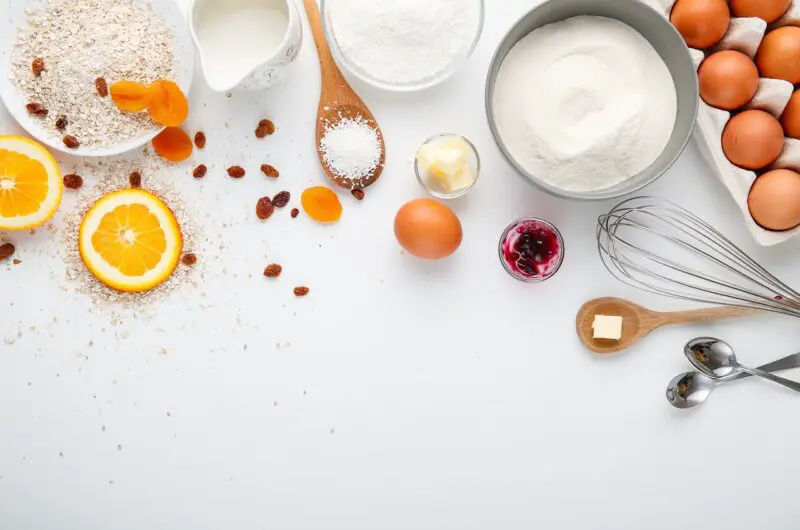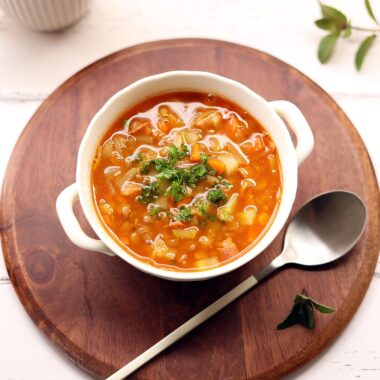Cooking is an essential skill, but even the most seasoned home chefs make mistakes in the kitchen. Sometimes, small missteps can drastically affect the taste, texture, or appearance of your meals. The good news? Most of these mistakes are easily fixable! Whether you’re a beginner or an experienced cook, recognizing and correcting these common errors will elevate your cooking game.
In this article, we’ll go over eight common cooking mistakes and give you practical solutions to ensure your meals turn out delicious every time.
1. Not Preheating Your Pan Properly
The Mistake:
You put food into a cold pan, or you start cooking before the pan is hot enough.
Why It’s a Problem:
When you don’t preheat your pan correctly, your food won’t cook evenly. Proteins (like steak or chicken) won’t sear properly, and vegetables may turn out soggy rather than crisp. If you’re using oil, a cold pan prevents it from distributing evenly, leading to uneven cooking and sticking.
How to Fix It:
- Always preheat your pan for a minute or two before adding ingredients.
- If you’re using oil, add it after the pan is hot. You’ll know it’s ready when the oil shimmers.
- For non-stick pans, use medium heat to prevent damage to the coating.
2. Overcrowding the Pan
The Mistake:
You pile too many ingredients into the pan at once, thinking it’ll save time.
Why It’s a Problem:
Overcrowding traps steam, making it impossible for food to sear or brown properly. Instead of getting a nice golden crust, your food will end up steamed and mushy.
How to Fix It:
- Cook in batches instead of overloading your pan.
- Leave enough space between ingredients so heat circulates properly.
- Use a larger pan or a second pan if needed.
3. Using the Wrong Knife (or a Dull One!)
The Mistake:
You use the wrong type of knife for the job, or worse—you use a dull knife.
Why It’s a Problem:
A dull knife requires more force, which increases the chances of slipping and cutting yourself. Also, using the wrong knife (like a serrated knife for chopping onions) makes prep work harder than it needs to be.
How to Fix It:
- Sharpen your knives regularly using a sharpening stone or a honing rod.
- Use the right knife for each task:
- Chef’s knife for general chopping
- Paring knife for small, precise cuts
- Serrated knife for bread and soft fruits
4. Not Letting Meat Rest After Cooking
The Mistake:
You cut into your steak or chicken immediately after cooking.
Why It’s a Problem:
When you cut into meat too soon, the juices run out, leaving it dry and less flavorful.
How to Fix It:
- Let your meat rest for 5-10 minutes before slicing.
- Tent it loosely with foil to keep it warm while it rests.
- This allows the juices to redistribute, keeping your meat moist and delicious.
5. Cooking with Cold Ingredients
The Mistake:
You start cooking with ingredients straight from the fridge, like butter, eggs, or meat.
Why It’s a Problem:
Cold ingredients don’t cook evenly. For example, a cold steak won’t sear properly, and butter won’t cream well when baking.
How to Fix It:
- Let meat rest at room temperature for about 20-30 minutes before cooking.
- Use room-temperature eggs for baking.
- If you forget to take out ingredients early, try quick fixes (like placing eggs in warm water for a few minutes).
6. Not Tasting as You Go
The Mistake:
You follow a recipe exactly but don’t taste your dish until it’s done.
Why It’s a Problem:
Every ingredient varies (saltiness of broth, acidity of tomatoes), so following a recipe word-for-word without adjusting can lead to bland or overly salty food.
How to Fix It:
- Taste your food throughout the cooking process—not just at the end.
- Adjust seasoning gradually to achieve the perfect balance.
- Don’t be afraid to tweak flavors with a little acid (like lemon juice or vinegar) to brighten the dish.
7. Overcooking Vegetables
The Mistake:
You cook vegetables too long, turning them mushy and lifeless.
Why It’s a Problem:
Overcooking destroys the texture and nutrients of vegetables, making them unappetizing and less nutritious.
How to Fix It:
- Use blanching for firmer vegetables (boil briefly, then shock in ice water).
- Sauté or roast veggies instead of boiling them to retain flavor and texture.
- Cook in batches and remove veggies from heat just before they’re fully done, as they’ll continue cooking slightly from residual heat.
8. Ignoring the Importance of Presentation
The Mistake:
You throw food onto a plate without considering its appearance.
Why It’s a Problem:
We eat with our eyes first! Even if the dish tastes great, a messy plate can make it less appetizing.
How to Fix It:
- Arrange food neatly on the plate.
- Use a contrast of colors (green herbs, vibrant veggies) to make the dish more appealing.
- Wipe the edges of the plate before serving for a cleaner look.
Final Thoughts
Cooking is all about practice, patience, and attention to detail. Even if you’ve made these mistakes in the past, the important thing is that you’re now aware of them—and that’s the first step to improving your skills!
By making these small adjustments, you’ll see a big difference in your cooking results. So the next time you step into the kitchen, keep these tips in mind and enjoy the process of making delicious, well-cooked meals.
Now, it’s time to get cooking—without these common mistakes! 🍳🔥
Taking Your Cooking Skills to the Next Level
Now that you know the eight most common cooking mistakes and how to fix them, let’s dive deeper into how you can improve your overall cooking skills. Avoiding mistakes is one thing, but actively working on refining your techniques will truly elevate your meals.
Bonus Tips to Improve Your Cooking
1. Understand Your Ingredients
Each ingredient behaves differently under heat, cold, or when combined with other foods. To cook like a pro, take time to:
- Learn about different cooking techniques (sautéing, roasting, braising, etc.).
- Experiment with new herbs and spices to create depth in flavors.
- Read up on food chemistry, especially if you enjoy baking.
Pro Tip: Start a cooking journal to note what worked and what didn’t in your recipes.
2. Master the Art of Seasoning
Many home cooks under-season their food or only add salt at the end of cooking. Instead:
- Season in layers—add a little salt at the start, during cooking, and just before serving.
- Use different types of salt (kosher salt for cooking, flaky salt for finishing).
- Experiment with acidity (lemon juice, vinegar) to brighten dishes.
3. Invest in Quality Kitchen Tools
While you don’t need a Michelin-star kitchen setup, having the right tools makes cooking easier and more enjoyable. Essential tools include:
- Sharp chef’s knife (a dull knife slows you down and is dangerous).
- Cast iron or stainless steel pans for better heat distribution.
- Instant-read thermometer to avoid overcooking meats.
- Wooden spoons & silicone spatulas to protect your cookware.
4. Learn Proper Food Storage Techniques
A great dish starts with fresh ingredients, so make sure you store them properly:
- Keep herbs fresh by placing them in water (like flowers) or wrapping them in a damp paper towel.
- Store onions and potatoes separately—they spoil faster when stored together.
- Label and date your leftovers so you use them before they go bad.
5. Work on Your Knife Skills
Good knife skills make cooking safer, faster, and more enjoyable.
- Practice the rocking motion when chopping with a chef’s knife.
- Use the claw grip to keep your fingers safe.
- Learn how to julienne, dice, and chiffonade for better presentation and cooking efficiency.
6. Don’t Be Afraid to Experiment
Some of the best recipes come from happy accidents!
- Try swapping ingredients to make dishes your own.
- Challenge yourself to cook with new cuisines or techniques.
- Have fun—mistakes happen, but that’s how you learn!
Common Questions About Cooking Mistakes
1. What’s the biggest mistake beginners make in the kitchen?
Not tasting their food as they cook. It’s the easiest way to prevent a dish from being too bland, salty, or unbalanced.
2. How do I know if my pan is hot enough?
A drop of water should sizzle and evaporate quickly when it hits the pan. For oil, look for a shimmering effect before adding food.
3. Why do my scrambled eggs turn out rubbery?
You’re likely cooking them over too high heat. Use low and slow heat, stirring constantly for soft, creamy eggs.
4. How do I fix over-salted food?
- If it’s a soup or sauce, add a potato to absorb some salt, then remove it.
- A splash of lemon juice or vinegar can help balance excessive saltiness.
- For solid foods, serve with a bland side (like rice or plain potatoes) to dilute the saltiness.
Final Encouragement: Keep Cooking and Improving!
Cooking is a lifelong skill, and every meal is an opportunity to get better. Even professional chefs continue learning and refining their techniques. If you ever feel discouraged, just remember—the best chefs were once beginners too!
So, take these tips, put them into practice, and keep enjoying the art of cooking. Whether you’re making a simple weeknight meal or experimenting with a gourmet dish, the key is to have fun and keep learning.


















